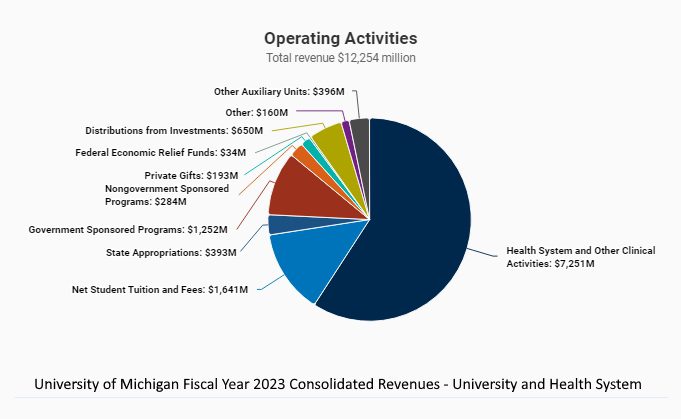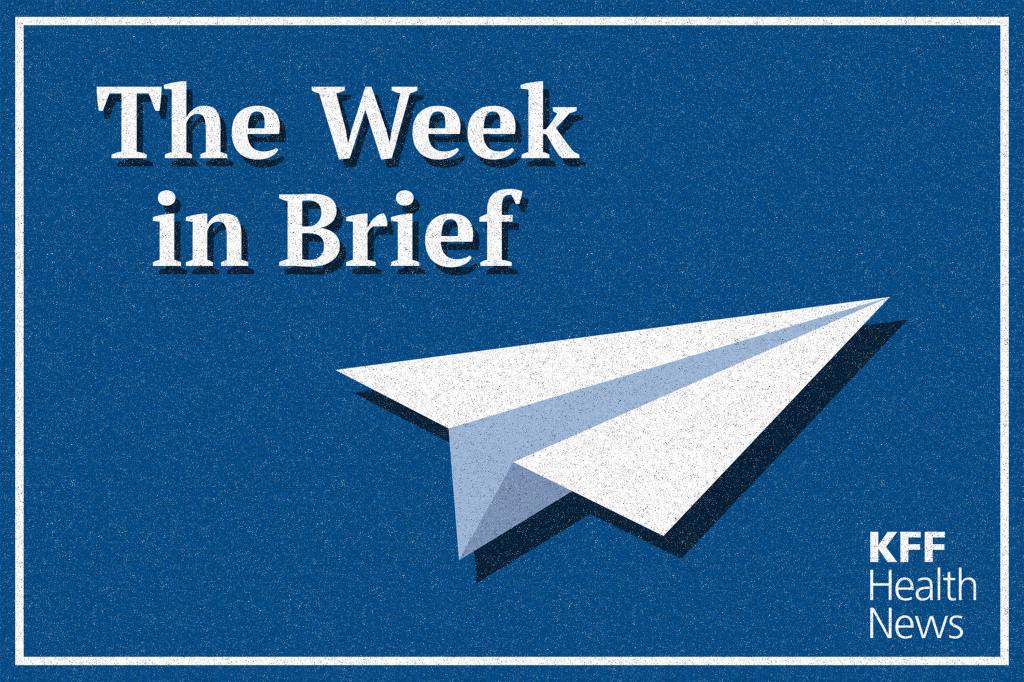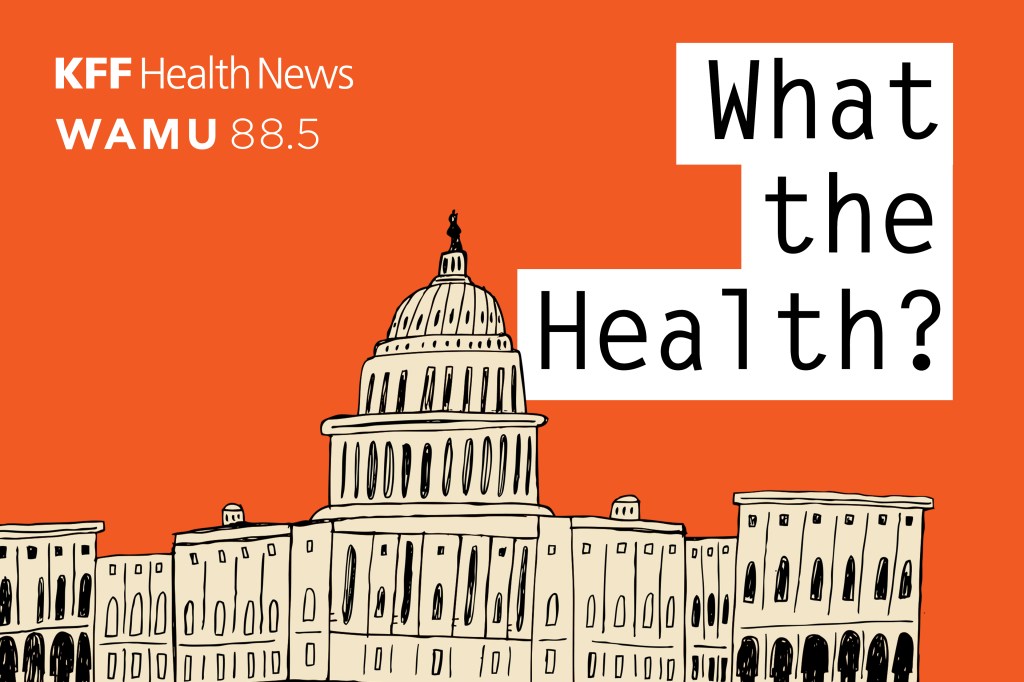- UHS to roll out behavioral health revenue cycle AI tools in 2026
- WVU Medicine hospital names interim CEO
- University Hospital COO to lead Main Line Health hospital
- 15 dentists making headlines
- What’s driving clinicians to quit, stay
- CMS to suspend enrollment into Elevance’s Medicare Advantage plans
- CMS to suspend enrollment into Elevance’s Medicare Advantage plans
- The biggest threats to the ASC model
- Oracle loses leaders in health division: Report
- RFK Jr. names 2 new members to CDC vaccine panel
- 10 providers seeking RCM talent
- 10 providers seeking RCM talent
- Carteret Health Care breaks ground on $50M outpatient campus, ASC
- FDA lifts hold on Intellia trial
- PDS Health added de novos across 3 states in February
- Infectious disease fellowships see decline in applicants, filled spots
- Novant posts 4.8% operating margin in 2025
- Novant posts 4.8% operating margin in 2025
- Texas hospitals to merge under Tenet lease agreement
- Oracle Health in the last 30 days
- The anesthesia physician shortage by state, by 2036
- Cleveland Clinic posts $913M operating income, 5% margin — 7 things to know
- Rutgers to unveil preventive cardiology program
- Atlanta GI practice to pay $4.75M for false claims allegations
- Clinician Engagement: The Operating Lever Behind Margin and Throughput
- Your Anesthesia Subsidy: Key Questions Every Hospital C-Suite Must Answer
- Telemedicine Visits Cost Five Times Less Than In-Clinic Care
- GLP-1 Drugs Might Ease Chronic Migraine, Study Says
- Blood Test Reveals Alcohol-Related Liver Disease
- Hormone Therapy Might Be Unnecessary For Some Prostate Cancer Patients
- Urban Traffic Noise Disrupts Sleep, Affects Heart Health After One Night
- Kennedy adds 2 new members to CDC’s vaccine panel ahead of delayed meeting
- Benzodiazepine Use Down In U.S., But OD Risk Remains, Study Says
- Families Defend Disability Services Amid Medicaid Cuts
- Medicaid Is Paying for More Dental Care. GOP Cuts Threaten To Reverse the Trend.
- Bavarian Nordic CEO to follow board chair out the door after failed private equity takeover
- Ascendis gains more altitude with FDA approval for dwarfism drug Yuviwel
- CDMO Quotient extends Ipsen supply pact for rare disease drug Sohonos
- Quest Diagnostics launches Google-powered AI chatbot to help patients understand lab results
- Tennr takes aim at phone call bottlenecks as it builds out automation for patient referral process
- DoseSpot, Arrive Health merge to combine prescribing tools with pharmacy, medical benefit data
- Why Digital Tool are Needed to Cope with Increasing Pressures in MedTech Innovation
- Why Digital Tool are Needed to Cope with Increasing Pressures in MedTech Innovation
- Electronics Pollution Pose Added Threat to Endangered Dolphins, Porpoises
- Flea And Tick Pills May Pose Environmental Risks, Study Finds
- ICE, ALS, Addiction Medicine, and Robotic Ultrasounds: Journalists Sound Off on All That and More
- 11 behavioral health executive moves to know
- 3 behavioral healthcare M&A deals in 2026
- New York City to invest $20M in perinatal mental health
- Anthem Blue Cross of California pushes E/M downcoding policy to April
- States shaping behavioral health parity enforcement: 7 things to know
- The expanding role of ASCs in orthopedic surgeries
- ‘Taking the finances off the table’: Sanford COO talks alignment with health plans
- Sarasota Memorial disputes OIG audit alleging $12.1M in Medicare overpayments
- The highest-paid gastroenterologist in the 10 largest Midwestern cities
- Sending clinicians on 911 calls: What to know from this Michigan pilot
- Sentara brings in new wave of ambulatory, surgical leadership
- Iowa dentist surrenders license
- Temple University gets approval for $3.19M rural dental clinic
- A Canadian Hospital Scoops Up Nurses Who No Longer Feel Safe in Trump’s America
- California weighs legislation to increase dental plan transparency: 5 things to know
- Dentsply Sirona launches restructuring plan: 8 notes
- American Academy of Pediatric Dentistry opposes EPA fluoride assessment plan: 7 notes
- Statement on the Adoption of Final Rules Under the Holding Foreign Insiders Accountable Act
- Statement on Final Rules for the Holding Foreign Insiders Accountable Act
- San Francisco OKs performance-based sobering center
- Clover Health CEO said company sees opportunity in complex MA environment
- Georgia School of Orthodontics appoints interim COO
- How pharma marketers are capturing the power of podcasts to connect with consumers
- Top 10 dental, DSO stories in February
- Aria Care Partners acquires Georgia dental provider
- Cigna's Evernorth quietly acquires hospital pharmacy CarepathRx
- Walgreens debuts virtual weight management clinic with access to GLP-1 meds
- New Obamacare Rules Could Raise Deductibles to $31K For Families
- Study Suggests One Common Amino Acid May Affect How Long Men Live
- Merck to wind down Gardasil production at N.C. plant, lay off 150-plus
- Walmart Great Value Cottage Cheese Recalled Over Pasteurization Issue
- Chris Bosh Says He’s 'Lucky To Be Alive' After Sudden Health Scare
- Patrick Kennedy: Collab with MAHA is essential to address mental health crisis
- Lilly debuts Nvidia supercomputer with fanfare and focus on escaping traditional pharma lifecycle
- Alignment CEO John Kao offers measured response to proposed 2027 MA rates
- Sanofi, Genentech, Kedrion back star-studded bleeding disorder awareness campaign
- Op-ed: Our patients deserve better safety reporting. AI could be the answer
- After CHMP nod, Moderna CEO applauds EU's 'rigorous scientific review'
- UCB's fast-growing Bimzelx leaps across blockbuster sales threshold as HS momentum builds
- Blood Test Can Predict Short-Term Survival Among Seniors
- How the Brain Learns to Have Seizures During Sleep
- Why Turning 19 Spikes Medicaid Loss for Millions
- Crash Course Might Speed Brain Stimulation Treatment For Depression, Study Suggests
- Wildfire Smoke Linked To Increase In Violent Assaults
- More Parents Are Refusing A Life-Saving Shot For Their Newborns, Study Finds
- He Needs an Expensive Drug. A Copay Card Helped — Until It Didn’t.
- To Avoid Care Disruptions, Know When the Clock Runs Out on Your Prior Authorization
- As SCOTUS takes on 'skinny label' review, top US lawyer sides with generics maker
- Lake Nona Impact Forum: There can't be longevity without tech
- Fierce Pharma Asia—China deal growth; Daiichi's new CMO; Astellas-Vir bispecific tie-up
- Autoimmune CAR-T: Navigating the FDA’s new regulatory playbook
- Oceans Healthcare taps behavioral hospital CEO
- FDA Approval for BIOTRONIK Solia CSP S Pacing Lead For LBBAP
- FDA Approval for BIOTRONIK Solia CSP S Pacing Lead For LBBAP
- Catalyst OrthoScience gets FDA 510(k) Clearance of Archer® Patient-Specific Instrumentation for Shoulder Arthroplasty
- Catalyst OrthoScience gets FDA 510(k) Clearance of Archer® Patient-Specific Instrumentation for Shoulder Arthroplasty
- Smith+Nephew signs distribution agreement with SI-BONE
- Smith+Nephew signs distribution agreement with SI-BONE
- Quantum Surgical Acquires NeuWave Medical, Inc.
- Quantum Surgical Acquires NeuWave Medical, Inc.
- Inside Children’s of Alabama’s approach to de-escalation training
- Partnering to Advance Drug Delivery Innovation
- How Pharma is Expanding its Global Footprint to Advance Clinical Research
- What the Health? From KFF Health News: What About the State of Health?
- 10 behavioral health leaders’ ‘North Star’ in turbulent times
- Teladoc Health reports slower growth, offers cautious 2026 outlook as it shifts telehealth model
- UHS expects $35M earnings hit from California psychiatric staffing mandate
- CFO Mark Kaye to take the helm at Carelon in leadership shake-up at Elevance Health
- Insurance groups say proposed flat Medicare Advantage rates fail to meet the moment
- Health Gorilla urges court to toss lawsuit filed by Epic, health systems
- Stryker launches Synchfix™ EVT, expanding options for flexible syndesmotic fixation
- Stryker launches Synchfix™ EVT, expanding options for flexible syndesmotic fixation
- Democrat-Led States Sue Trump Administration Over Cuts to Childhood Vaccine Schedule
- CDC Vaccine Advisory Panel To Revisit COVID Shot Safety Next Month
- Frozen Blueberry Recall Issued Across Four States for Listeria
- Boehringer's Hernexeos secures speedy first-line expansion in FDA's 2nd national priority nod
- 'Like talking to a brick wall': Senate hearing takes aim at FDA's rare disease review process
- After delay, CDC vaccine panel sets new dates to discuss long COVID and mRNA shot safety
- After delay, CDC vaccine panel sets new dates to discuss long COVID and mRNA shot safety
- Decision Criteria for Technology Commercialization of Medical Devices in 2026
- Decision Criteria for Technology Commercialization of Medical Devices in 2026
- Cientos de enfermeros estadounidenses dejan atrás el Estados Unidos de Trump y eligen trabajar en Canadá
- Continuous Cardiac Monitoring: Redefining the “End” of a Clinical Study?
- Continuous Cardiac Monitoring: Redefining the “End” of a Clinical Study?
- Could Drone-Delivered Defibrillators Save Lives?
- Eisai points the way to kidney cancer support with Kompass digital hub
- Sarepta CEO Doug Ingram to retire after a decade of Duchenne breakthroughs and controversies
- Inflammation Linked To Brain Damage, Memory Problems Among Football Players
- Early Birds, Active Folks Less Likely To Develop ALS
- Disasters Can Affect Mental Health A Decade Later, Review Finds
- AI Chatbots Can Contribute To Worsening Mental Illness, Study Finds
- Newborns Exposed to More ‘Forever Chemicals’ Than Once Thought
- Study Highlights Unique Parenting Struggles of Younger Patients With Heart Disease
- Altman-backed startup Verifiable rolls out AI agent to automate credentialing
- ‘You Aren’t Trapped’: Hundreds of US Nurses Choose Canada Over Trump’s America
- ‘Kind of Morbid’: Health Premiums Threaten Their Nest Egg. A Terminal Diagnosis May Spare It.
- OpenEvidence releases AI-integrated dialer feature to expand its reach with clinicians
- CMS unveils new initiatives aimed at cracking down on healthcare fraud
- After 2025's volumes shortfall, Universal Health Services says capacity, headcount investments will pay off in 2026
- GSK's ViiV confirms staying power of long-acting HIV treatment Cabenuva in adolescents
- A new standard? Merck's Welireg combos deliver 1-2 punch to kidney cancer
- Operating a New Standard for Life-Saving Pharmaceutical Logistics
- Add-Only Retro Programs Are Now a Federal Red Flag. Here's the Evidence.
- Surgeon general nominee Casey Means faces Senate grilling on vaccines, conflicts of interest

Barak Richman, the Bartlett Professor of Law and Business Administration at Duke University posted a thought provoking opinion on Politico yesterday. Using the University of North Carolina as an example, he notes that:
One answer — albeit a distressing one — is that UNC, like many large universities, is really a hospital system with a university appendage. UNC Health has a budget that is about $2.2 billion more than the entirety of UNC’s flagship campus in Chapel Hill ($3.5 billion vs $5.5 billion). This is also true for North Carolina’s private universities that operate health systems, like Duke University, whose health system has a budget $1.1 billion larger than the remainder of the university ($4.5 billion vs $3.4 billion). Moreover, both health systems are growing faster than the rest of both campuses.These facts are important because the financial health of hospitals is highly dependent on political decisions. For example, the North Carolina General Assembly’s legislative session this year included debates over Medicaid expansion, which would infuse enormous sums of additional dollars into the state’s health sector, and “ certificate of need” rules that would govern whether current hospitals could prevent competition from new entrants. The legislature — like all other state legislatures — also routinely makes decisions on insurance eligibility, the array of services that medical professionals may offer (so called scope-of-practice rules) and the tax-exempt status of many health care facilities.
So, perhaps it is not surprising that UNC leaders prioritized legislation that enhanced the financial security of its hospital system rather than measures that would protect its Chapel Hill faculty. And perhaps it is not surprising the University of Pennsylvania, MIT and Harvard — each of which rely heavily on government, foundation and industry funding (UPenn’s health system has a budget that is more than twice the university’s) — might seek presidents who exhibit the cautious effectiveness of corporate leaders, who can assure cooperation with policymakers and compromise with ideologues, rather than visionaries who inspire resoluteness and can mount an aggressive defense against Rep Elise Stefanik (R-N.Y.).
Professor Richman's main concern is a corrosive effect on academic freedom, but a larger view would note that the managements of universities with substantial health systems will focus on their health care subsidiaries to the detriment of their educational subsidiaries.
Looking at Michigan's largest university health system, we see the same effect:
And the supremacy of U of M's health care operations is growing rapidly every year:
https://2023.annualreport.umich.edu/leadership-messages/chief-financial-officers-report/
https://2022.annualreport.umich.edu/leadership-messages/chief-financial-officers-report/
Barak Richman, the Bartlett Professor of Law and Business Administration at Duke University posted a thought provoking opinion on Politico yesterday. Using the University of North Carolina as an example, he notes that:
One answer — albeit a distressing one — is that UNC, like many large universities, is really a hospital system with a university appendage. UNC Health has a budget that is about $2.2 billion more than the entirety of UNC’s flagship campus in Chapel Hill ($3.5 billion vs $5.5 billion). This is also true for North Carolina’s private universities that operate health systems, like Duke University, whose health system has a budget $1.1 billion larger than the remainder of the university ($4.5 billion vs $3.4 billion). Moreover, both health systems are growing faster than the rest of both campuses.These facts are important because the financial health of hospitals is highly dependent on political decisions. For example, the North Carolina General Assembly’s legislative session this year included debates over Medicaid expansion, which would infuse enormous sums of additional dollars into the state’s health sector, and “ certificate of need” rules that would govern whether current hospitals could prevent competition from new entrants. The legislature — like all other state legislatures — also routinely makes decisions on insurance eligibility, the array of services that medical professionals may offer (so called scope-of-practice rules) and the tax-exempt status of many health care facilities.
So, perhaps it is not surprising that UNC leaders prioritized legislation that enhanced the financial security of its hospital system rather than measures that would protect its Chapel Hill faculty. And perhaps it is not surprising the University of Pennsylvania, MIT and Harvard — each of which rely heavily on government, foundation and industry funding (UPenn’s health system has a budget that is more than twice the university’s) — might seek presidents who exhibit the cautious effectiveness of corporate leaders, who can assure cooperation with policymakers and compromise with ideologues, rather than visionaries who inspire resoluteness and can mount an aggressive defense against Rep Elise Stefanik (R-N.Y.).
Professor Richman's main concern is a corrosive effect on academic freedom, but a larger view would note that the managements of universities with substantial health systems will focus on their health care subsidiaries to the detriment of their educational subsidiaries.
Looking at Michigan's largest university health system, we see the same effect:

And the supremacy of U of M's health care operations is growing rapidly every year:
https://2023.annualreport.umich.edu/leadership-messages/chief-financial-officers-report/
https://2022.annualreport.umich.edu/leadership-messages/chief-financial-officers-report/
The government of Michigan will have to soon decide whether the Board of Regents form of management dictated by Michigan's 1963 Constitution is still well suited to operating this institution.
Get MHF Insights
News and tips for your healthcare freedom.
We never spam you. One-step unsubscribe.



















